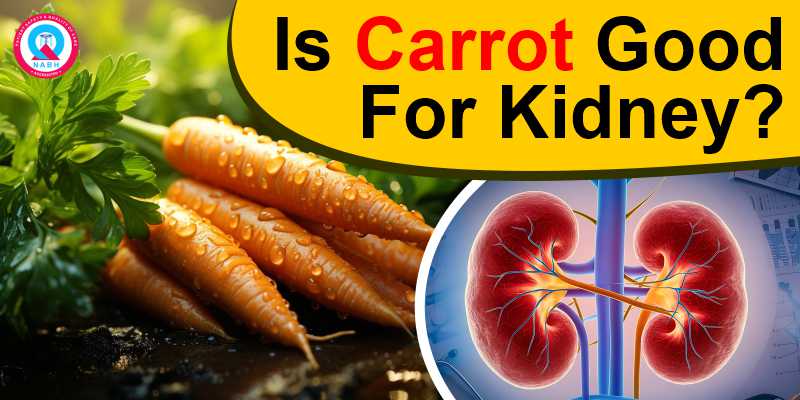
Nutrients are in carrots, which serve multiple purposes and have numerous health benefits. Important vitamins, minerals, and antioxidants support health in general and improve well-being. But is carrot good for kidneys? Let's have a look at what role it plays in kidney health and how it complements kidney disease treatment in india.
The nutrition profile of carrots includes the following:
Vitamin A: Helps with proper immune function and protects cells against oxidative stress.
Potassium: This mineral has an important role in blood pressure regulation and should be limited to patients with kidney disease.
Dietary Fiber: Keeps digestion in good shape and relieves the body of toxins.
Antioxidants: Reduce inflammation and fight off free radicals.
The following benefits can be observed while eating carrots for kidney health.
Carrots are loaded with antioxidants that help detoxify the body by reducing oxidative stress and removing toxins. This is consistent with Ayurvedic medicine for kidney diseases, which emphasizes detoxification for improved kidney function.
Carrots are especially beneficial to aid digestion, hence preventing constipation and promoting the elimination of metabolic waste, therefore lessening the burden on the kidneys. These are used effectively in kidney disease treatment in Ayurveda.
Conversion of beta-carotene to vitamin A occurs when carrots are ingested. Vitamin A is essential because it protects kidney tissues against damage done by oxidative stress.
Carrots contain potassium, which can help control blood pressure levels, but it should be controlled in those with advanced kidney disease.
In Ayurveda, carrots are categorically classified among the tridosha foods pertaining to balance among the three doshas of Vata, Pitta, and Kapha. Hence, indisputably, carrots have a part to play in kidney-friendly Ayurvedic dietary practices. It should, however, be taken in moderation, especially for CKD patients. The best Ayurvedic treatment in India customizes treatment plans as per the patient’s medical conditions.
Herbal Remedies: In Ayurveda, a combination of herbs like Punarnava, Gokshura, and Varuna is used, which will complete the nutritional benefits of carrots, promoting kidney functions.
Detoxing Procedure: Panchakarma, an Ayurvedic detoxifying therapy, acts very nicely when combined with a balanced diet that includes carrots for kidney cleansing.
Dietary Guidelines: Ayurveda recommends the intake of fresh and easy-to-digest foods. Steamed or mildly cooked carrots could be included in a kidney-friendly diet.
Ayurvedic medicine for kidney disease encompasses a range of therapeutic regimes to treat the condition in balance with the rest of the body and regain kidney function. They may also support drugs and tonics administered to obtain these enhanced results, especially traditional Ayurvedic remedies like Punarnavadi Kashayam and Chandraprabha Vati.
Karma Ayurveda is one of the reputed Ayurvedic hospitals in India that offers individualized kidney disease treatment in Ayurveda. Karma Ayurveda puts forth holistic therapies, herbal remedies, and dietary recommendations such as carrot-based suggestions for the better functioning of kidneys.
Carrots are a great addition to a kidney-friendly diet, but moderation is key. With their detoxifying properties, carrots could prove to be a good ally along with Ayurvedic medicine for kidney diseases. Lastly, for long-term results, seek out kidney disease ayurvedic treatment as provided by Ayurvedic hospitals in India to tackle this root cause of poor kidney function and promote overall well-being.
Second Floor, 77, Block C, Tarun Enclave, Pitampura, New Delhi, Delhi, 110034